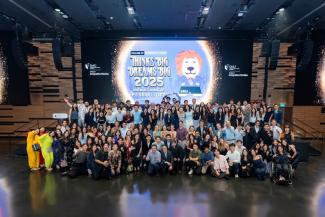
Singapore Management University’s (SMU) College of Integrative Studies (CIS) kicked off the new academic year on 29 August 2025 with its flagship Thinks Big Dreams Big (TBDB) event. Held on campus, the evening brought together faculty, staff, students, donors and industry leaders, including CIS advisory board members, in a celebration of teaching excellence, industry partnership, and the launch of the College’s latest freshman cohort.
Centred on the theme ‘Our Multiverse of Possibilities’, the event underscored CIS’s commitment to shaping future-ready graduates equipped to navigate diverse academic, professional, and personal pathways.
“The learning pathways at CIS emphasise gentle guidance and structure provided by faculty advisors, and yet also bold experimentation as students incorporate academic and life lessons from internships, community service, global exposure, and/or residential living and learning experiences in crafting their unique majors,” commented Prof Elvin Lim, Dean, CIS. “Each of these experiences provide an opportunity for our students to reshape or recast their majors, to explore intellectual and experiential possibilities, and ultimately to make their unique impact on the society.”
In the spirit of the theme, participants attended the event dressed in an outfit that reflected their individual take on a multiverse of possibilities. In a bid for the Best Dressed Award, shortlisted attendees were invited on stage to share the story behind their look. The good fun underscored an important key message: while the university experience might feel like stepping into a multiverse, filled with choices, uncertainties and new pressures, CIS students are encouraged to embrace change, define success on their own terms beyond traditional academic labels and lean on the support of a close-knit community.
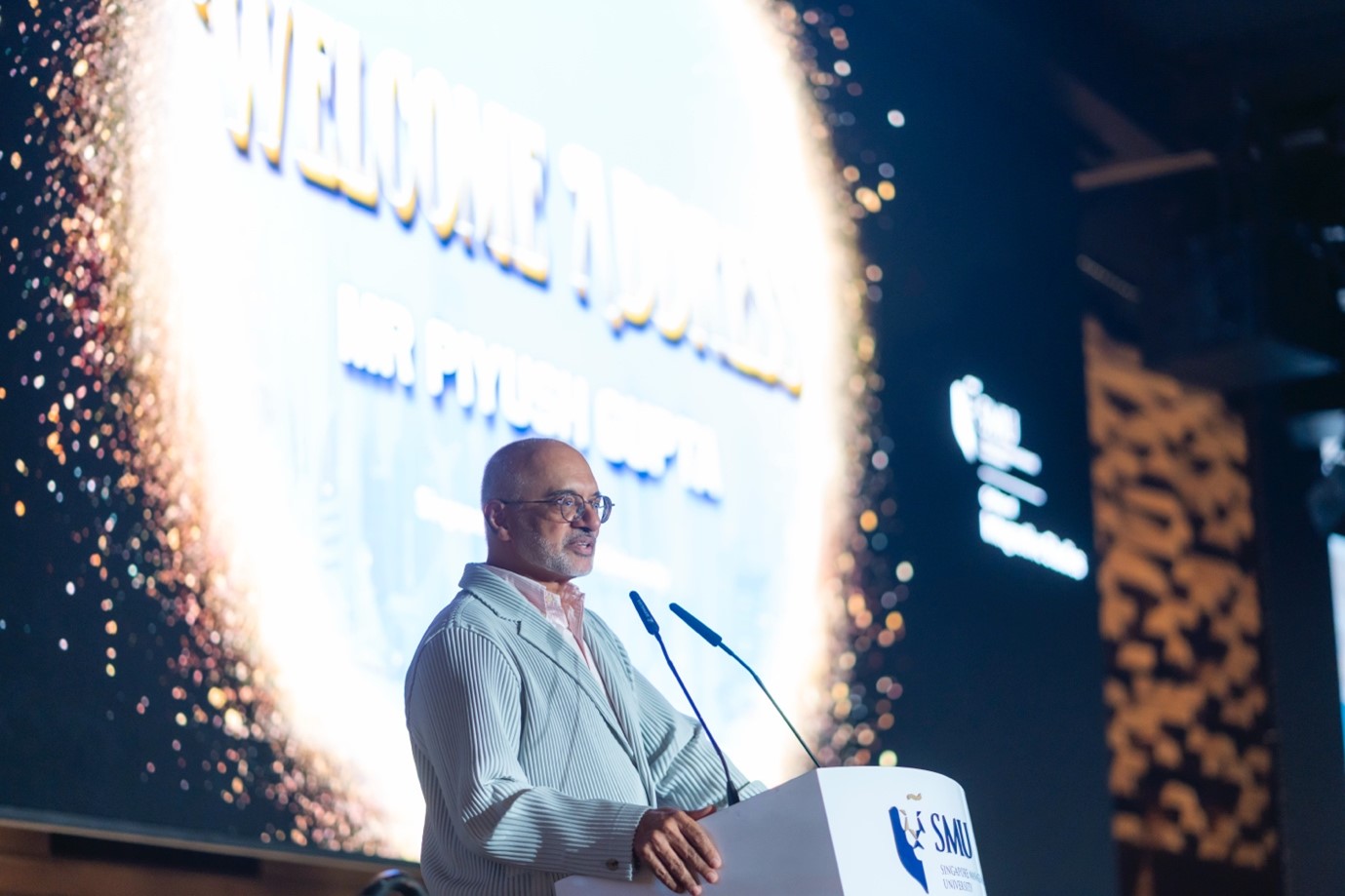
In his welcome address, SMU Chairman Piyush Gupta commented, “CIS is a fantastic experiment, and I do think that what we have here - the Deferred Declaration of Degree, the flagship Bachelor of Integrative Studies (Individualised Major) programme - all of these allow the CIS students to combine knowledge from different disciplines to derive innovative solutions to gain a deep understanding of current and emerging industry and societal needs. This is what I think we will need in the world that is to come.”
Mr Gupta had earlier shared his view that those capable of horizontal thinking and connecting the dots would be the ones to succeed in the future workplace.
“All of us are familiar today in the last year with generative AI and the power of the computer to spew out domain knowledge at the touch of a button. Whether you're a lawyer, a doctor, or any other specialised profession, I can tell you that when you press the Chat GPT button or Gemini, any of these things, it'll give you two pages of summary better than anything you have in your head,” he mused.
“That doesn't mean domain knowledge is dead. It's just that the premium on domain and domain knowledge is going to fall unless you're doing deep research. In this kind of world where the computer will always know more than you do about specific domains, it's my strong belief that what will make a difference is what I call horizontal skills. The capacity to think analytically - more importantly, the capacity to have context, to connect the dots, to be able to exercise curiosity, to have very strong communication skills. These are what would make the difference,” said Mr Gupta.
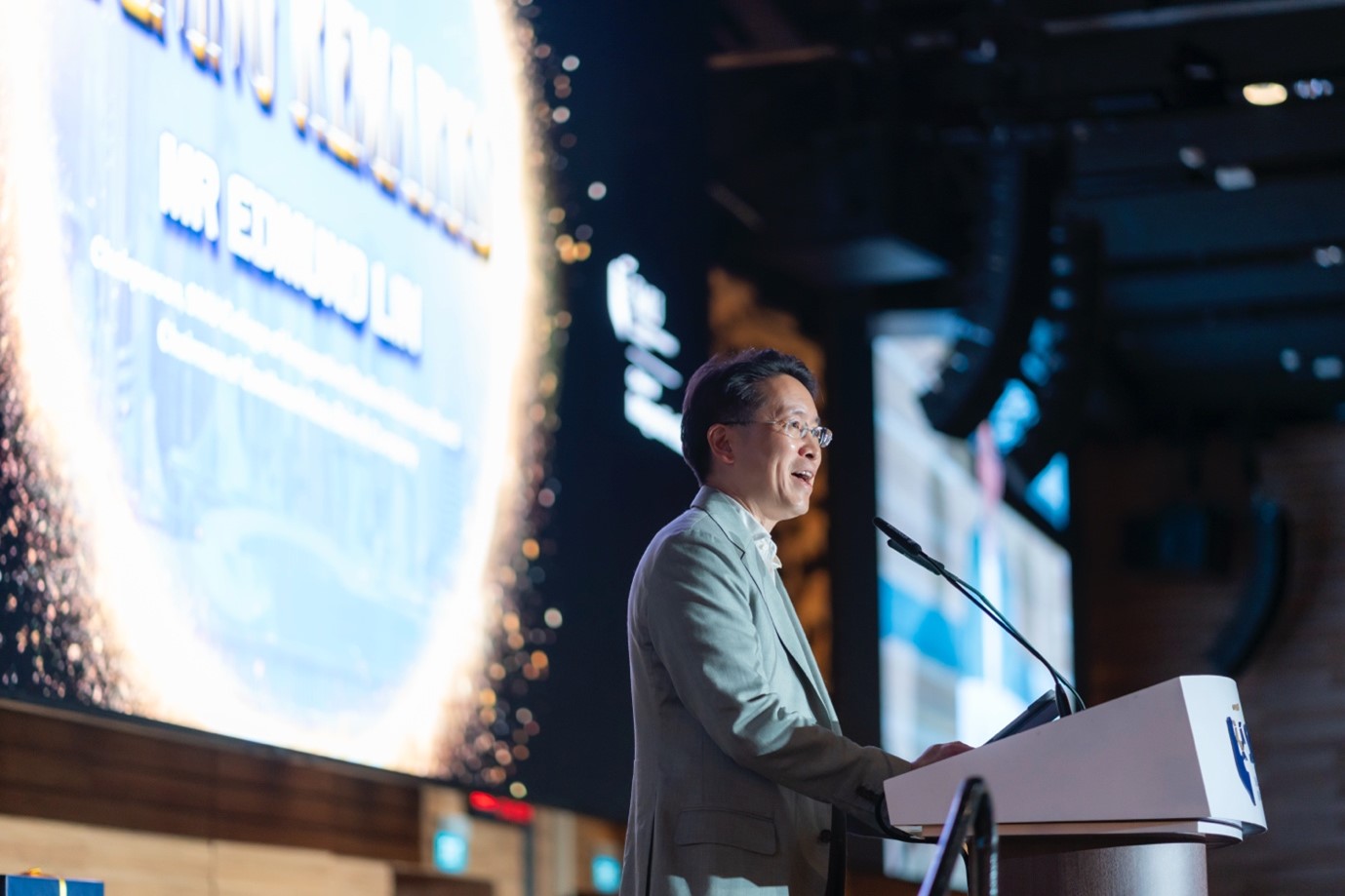
Mr Edmund Lin, CIS Advisory Board Chairperson, who likewise expressed optimism in the prospects of graduates, said in his opening remarks: “One of the things that's quite unique about CIS is the principle and the application of really genuine mentorship, which I think will put us all in good stead for the years to come. Many of you, who are doing individualised majors, would have the benefit of a faculty member that is there with you throughout the whole process to guide you.
The capstone industry project pairs you with an actual industry mentor, someone in the real world who's guiding you through your efforts to really bring that wisdom and interdisciplinarity that's going to make a huge difference, not just for your project and your major, but preparing you for the rest of your career ahead. This mentorship opportunity, which we think is quite unique relative to other universities, other programmes, is something that makes CIS truly special.”
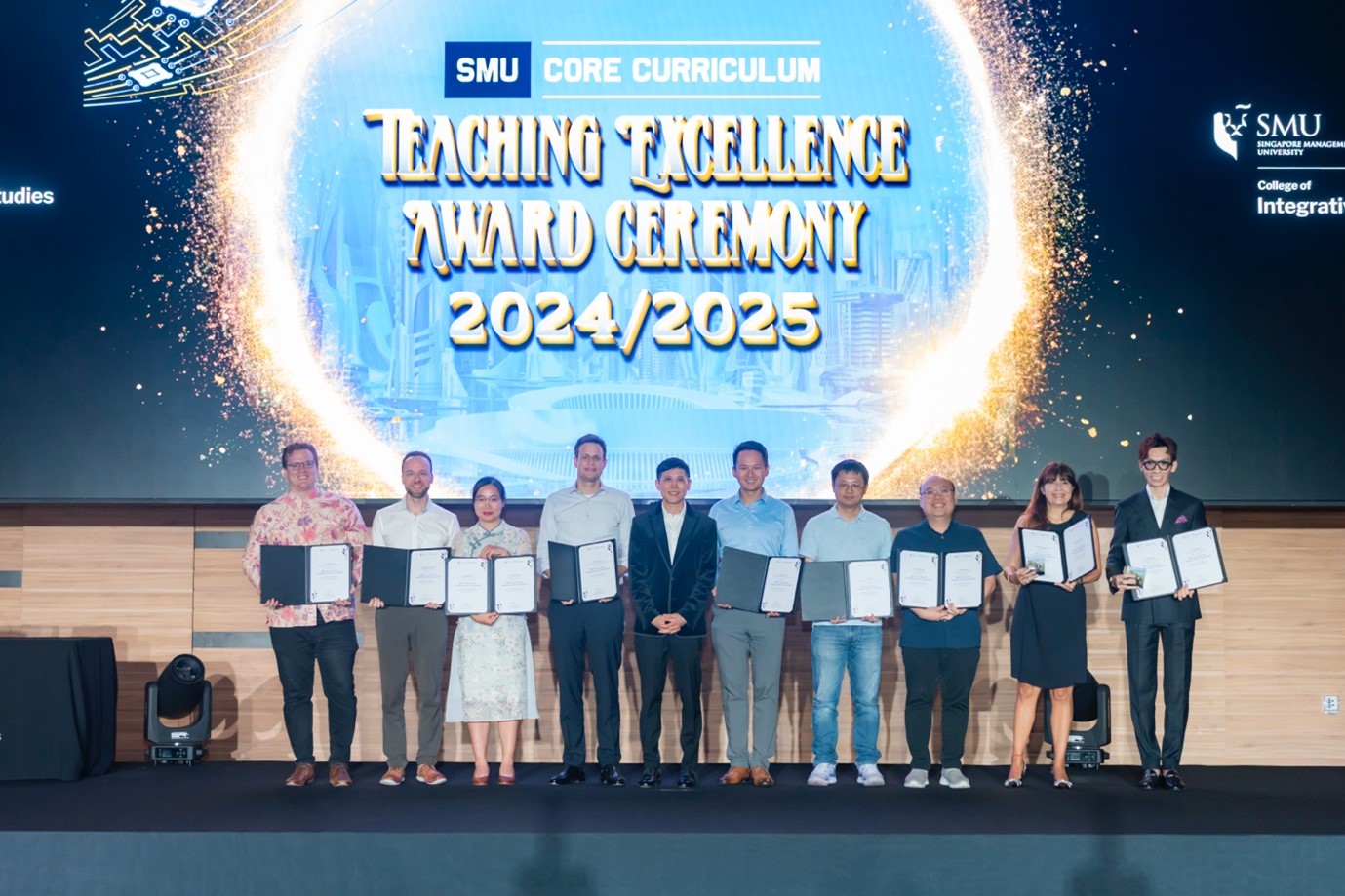
The SMU Core Curriculum Teaching Excellence Awards were presented at the event in recognition of outstanding faculty members who had demonstrated exceptional performance and commitment during the academic journey. Recipients had been evaluated by a 3-member panel Awards Committee who subsequently made their recommendations to the Dean of the College.
The faculty members recognised for their excellent teaching and classroom contributions for SMU's Core Curriculum in academic year academic year 2024/25 are:
- Michael Shaerer and Wang Hai (Capabilities pillar)
- Daniel Seah and George Wong (Civilisations pillar)
- Bei Hong Hailey, Jonathan Chase and Nathan Peng Li (Communities pillar)
The evening also recognised two faculty who qualified for the Hall of Fame for receiving the Teaching Excellence Award for three consecutive academic years:
- Francesca Benvenuti (for AY21/22 to AY23/24)
- Daniel Seah (for AY2022/23 to AY2024/25)
“This recognition is a milestone for a pivot. I want to consolidate what works, interrogate what doesn’t, and build a replicable, evidence-based toolkit for high-impact teaching of the Core Curriculum,” said Associate Professor of Law (Education) Daniel Seah, who was inducted into the Hall of Fame for teaching Big Questions, Digital Law & Technological Innovations, and Ethics & Social Responsibility.
Commenting on how the SMU Core Curriculum had evolved to meet the changing needs of students, Daniel said: “SMU nurtures graduates who are independent lifelong learners and change agents. These are individuals who decide what, when, and how deeply to grow and contribute meaningfully to the world around them. In this respect, the Core Curriculum’s fundamental purpose of broadening perspectives remains constant, although learning modalities and societal contexts evolve.”
“I argue that this purpose should endure across all iterations of the Core Curriculum. The real opportunity lies in aligning the expanding demands of our present zeitgeist with the depth of learning at SMU. Breadth and depth can reinforce and not diminish each other. But this is a task that invites collaboration, imagination, and clarity of purpose,” said Daniel.
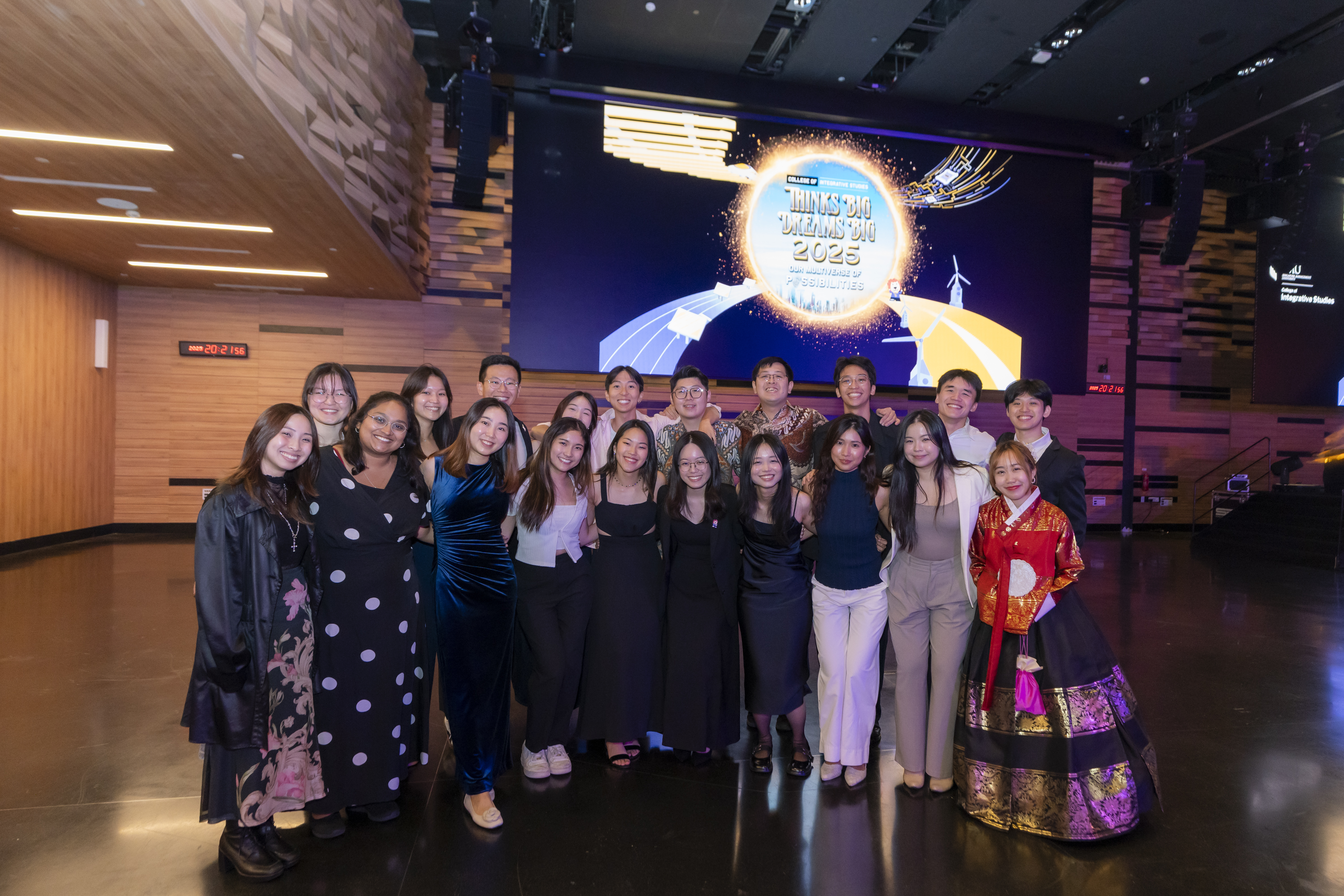
Photo credit: SMU College of Integrative Studies